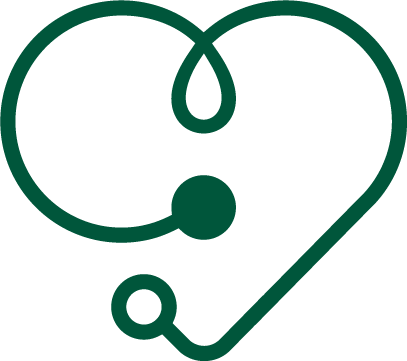Yes, allergies can cause shortness of breath. Allergies can lead to an increase in the production of mucus in the airways whilst also narrowing of the airways, making it difficult to breathe. This can happen due to the release of histamine, a chemical that is produced by the body in response to an allergen, which can cause inflammation and swelling in the airways.
Allergic rhinitis, commonly known as hay fever, is an example of an allergic condition that can cause shortness of breath. When the nose is congested due to an allergic reaction, it can be difficult to breathe through the nose, which can lead to mouth breathing. This can cause dryness of the throat and mouth, leading to shortness of breath.
Asthma is another example of an allergic condition that can cause shortness of breath. Asthma is a chronic lung disease in which the airways become inflamed and narrowed, making it difficult to breathe. Allergic asthma is triggered by allergens such as dust mites, pet dander, mould, and pollen.
Shortness of breath due to allergies would normally improve on taking an antihistamine.
Should any new onset of shortness of breath not improve following taking an antihistamine or you are concerned about its severity and / or duration it is important to consult with a healthcare professional to determine the cause and to develop an appropriate treatment plan. Iit's important to consult with a healthcare professional to determine the cause and to develop an appropriate treatment plan.
What causes allergies?
Allergies occur when the immune system overreacts to a substance that is normally harmless, such as pollen, mould, dust, or pet dander. These substances are known as allergens. When an allergen enters the body, the immune system mistakes it as a harmful invader and releases chemicals, including histamine, to fight it off. This response can cause symptoms such as sneezing, runny nose, itchy eyes, and shortness of breath.
The exact cause of allergies is not well understood, but it is thought to be a combination of genetic and environmental factors. People who have a family history of allergies are more likely to develop allergies themselves. Certain environmental factors, such as exposure to pollution, can also increase the risk of developing allergies.
Allergies can develop at any age and can affect people differently. For example, some people may only experience mild symptoms, while others may experience severe symptoms that can impact their daily life.
It's worth noting that allergies can also be caused by food, medications, and insect bites or stings, in addition to the inhalants mentioned above. Also, there are different types of allergies such as seasonal, perennial, food and drug allergies, each has its own set of triggers and symptoms.
How many people are affected by allergies?
Allergies are a common health problem that affects a large number of people worldwide. According to the World Allergy Organization (WAO), approximately 30-40% of the world population has an allergy to at least one substance. The prevalence of allergies varies by country and region, but it is generally considered to be on the rise in many parts of the world.
In the United States, allergies are one of the most common chronic conditions, affecting around 50 million Americans. The prevalence of allergies in the US has been increasing in recent years, particularly in children.
In Europe, around 30-40% of the population is affected by allergies, and the prevalence is also increasing.
In Asia, allergies are becoming more common, particularly in urban areas where exposure to pollutants and allergens is higher.
It's worth noting that these figures may vary depending on the population surveyed and the criteria used to define allergies. Also, the prevalence of certain allergies may vary by region and season, for example, hay fever is more common in spring and summer.
Symptoms of allergies
Symptoms of allergies can vary depending on the type of allergen and the person's individual response, but some common symptoms include:
Sneezing and runny nose: These symptoms occur due to the release of histamine, which causes the blood vessels in the nose to swell and produce excess mucus.
Itchy eyes, nose, and throat: These symptoms are caused by the release of histamine, which can cause itching and swelling in the eyes, nose, and throat.
Nasal congestion: This occurs when the blood vessels in the nose swell and produce excess mucus, which can make it difficult to breathe through the nose.
Cough: This can occur due to postnasal drip, which is when excess mucus drips down the back of the throat, causing a cough.
Hives and eczema: These are skin reactions that can occur due to an allergic reaction, characterised by red, itchy, raised, swollen skin.
Anaphylaxis: This is a severe allergic reaction that can occur within minutes of exposure to an allergen and can be life-threatening.
Symptoms include:
swelling of the mouth, throat or tongue, which can cause difficulty breathing, wheezing, throat tightness, and swallowing difficulties.
Other symptoms include
itchy skin or a raised, red skin rash (hives), swollen eyes, lips, hands and feet, abdominal pain, nausea and vomiting, feeling lightheaded or faint due to low blood pressure with potentially collapse and becoming unconscious.
These symptoms can vary in severity and duration, and it's important to consult with a healthcare professional if you experience severe or prolonged symptoms.
If you have a suspicion that you, or someone you are with, is experiencing an Anaphylaxic attack you should phone the emergency services immediately.
Remedies for allergies
There are several remedies that can help manage the symptoms of allergies, including:
Medications: There are two types of over-the-counter antihistamines. Chlorphenamine (commonly known as Piriton) is a quick acting antihistamine, but whilst it acts very quickly, (30 to 60 minutes) the effect does not last long (you may need to take a few during the day, with a minimum wait of 4 hours between doses) and can cause drowsiness. Other over the counter antihistamines, such as cetirizine, loratadine, and fexofenadine, can help relieve sneezing, runny nose, and itchy eyes, and tend to take longer to 'kick in' than chlorphenamine, but last longer and generally do not cause drowsiness. Always check with your Pharmacist about the correct dosage for your age, and whether it is appropriate for you to take when considering other medical conditions and concurrent medication. Nasal sprays, such as fluticasone and mometasone, can also help relieve nasal congestion. For more severe symptoms, your healthcare professional may prescribe stronger medications.
Allergen avoidance: One of the best ways to prevent allergic reactions is to avoid the allergens that trigger them. For example, if you have a pollen allergy, try to stay indoors on days when the pollen count is high and keep windows and doors closed.
Nasal irrigation: Rinsing the nasal passages with a saline solution can help to remove allergens and reduce inflammation.
Air purifiers: Air purifiers can help to remove allergens from the air in your home, which can help to reduce symptoms.
Immunotherapy: Also known as allergy shots, it's a long-term treatment that can help to reduce sensitivity to allergens. It's used for people with specific allergies that are difficult to control with other treatments.
Lifestyle changes: Regular exercise, a healthy diet, and getting enough sleep can help to strengthen the immune system and reduce the severity of allergies.
It's worth noting that the best remedy for allergies may vary depending on the person, the type of allergen and the severity of the symptoms. Consulting with a pharmacist is the best way to determine the most appropriate treatment plan for you.












